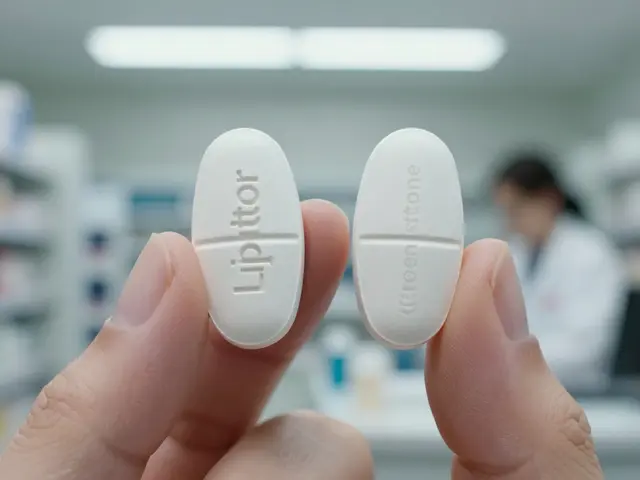Calcium Carbonate – What It Is, How It Works, and When to Use It
If you’ve ever reached for an antacid or a bone‑health pill, chances are it contained calcium carbonate. This simple mineral does two main jobs: it supplies calcium for strong bones and it neutralizes stomach acid when you need quick relief.
Common Uses of Calcium Carbonate
People take calcium carbonate for three big reasons:
- Bone health. It’s a cheap, widely available source of calcium that helps keep your skeleton strong, especially if you’re older or don’t get enough dairy.
- Acid reflux relief. A few chewable tablets can calm heartburn fast because the mineral acts like a sponge for excess stomach acid.
- Supplement filler. Many multivitamins and calcium‑combined formulas use calcium carbonate as the base ingredient.
Because it’s inexpensive and easy to find, doctors often recommend it before trying stronger prescription meds.
How Much Should You Take?
The right dose depends on why you’re using it. For bone support, most adults aim for 1,000‑1,200 mg of elemental calcium per day – that’s usually two to three regular tablets (each about 500 mg). If you’re treating occasional heartburn, a single 750‑mg chewable tablet can be enough.
Don’t exceed the recommended amount. Too much calcium can cause kidney stones or interfere with iron and zinc absorption. A good rule of thumb: split your dose into two parts (morning and evening) to improve absorption and reduce stomach upset.
Possible Side Effects
Calcium carbonate is safe for most people, but watch out for these common issues:
- Constipation – a high‑calcium diet can slow gut movement. Drink plenty of water and add fiber to your meals.
- Bloating or gas – especially with chewable antacids that contain extra ingredients.
- Kidney stones – if you have a history of stones, talk to your doctor before starting high‑dose calcium.
If you notice severe stomach pain, unexplained vomiting, or blood in stool, stop the supplement and seek medical help right away.
Buying Tips: What to Look For
When you shop for calcium carbonate, keep these pointers in mind:
- Check the label. Look for “elemental calcium” – that tells you how much usable calcium is actually in each pill.
- Pick reputable brands. Choose manufacturers with good reviews and clear quality testing info. Avoid generic products without a lot number or expiry date.
- Avoid added fillers. Some cheap versions mix in sugar alcohols that can cause extra gas.
- Consider combo formulas. If you need vitamin D for better calcium absorption, a combined tablet can simplify your routine.
Buying online? Stick to trusted pharmacies like Viamedic.com – they list product details, third‑party testing results, and clear pricing.
Quick Takeaways
Calcium carbonate is a versatile, low‑cost option for bone health and occasional heartburn. Aim for the right dose, stay hydrated, and choose reputable brands to avoid side effects. If you have kidney issues or take other meds that interact with calcium, check with your doctor first.
Ready to add calcium carbonate to your daily routine? Browse Viamedic’s selection, compare prices, and read user reviews before you click ‘Buy’. Your bones (and stomach) will thank you.
Natural vs. Synthetic Calcium Carbonate: What's The Difference?
Calcium carbonate comes in two forms: natural and synthetic, each with unique features. Natural calcium carbonate, often derived from limestone and marble, is eco-friendly but may carry impurities. Synthetic calcium carbonate, produced via chemical processes, offers purity and consistency, ideal for industries needing high-quality grades. Learn about their different properties, applications, and why they matter in various manufacturing processes.
About
Medications
Latest Posts


Authorized Generics: Same Drug, Different Label - What You Need to Know
By Orion Kingsworth Jan 7, 2026

Buy Cheap Generic Synthroid Online - Safe, Fast & Affordable
By Orion Kingsworth Oct 13, 2025

Amlodipine and POTS Syndrome: Can This Medication Help with Symptoms?
By Orion Kingsworth Apr 28, 2023

